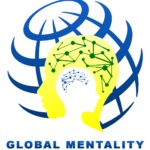Have you ever craved something so strongly that your palms sweat at the thought of having it? Your heart races every time you think about it? You would do almost anything to get it? When you are unable to get it you feel sick or sad? This.. my friends.. is how I feel about SEAFOOD. I love it. I can eat crab legs and shrimp everyday of the week! Seafood is my addiction. What is yours? We all have a few.
On a serious note, food addiction is a real disorder. In many situations, it occurs as a reaction to stressful or traumatic events. Foods that are consumed are usually unhealthy. The craving or need for food is often correlated with the release of dopamine (“feel good” chemical messenger released by our bodies that evokes pleasure). Individuals receive some form of relief from the stress when dopamine is released. This in turn causes the behavior to continue, which leads to addiction.
Addiction to drugs works almost the same way. What makes an addiction to drugs different than food? One of the major differences is potency. Side effects or repercussions from excessive drug use can be life threatening. An example of this is withdrawals. These symptoms can occur physically and cognitively as a reactions to not receiving drugs. They can range from hallucinations and heart palpitations to more severe symptoms like seizures or heart anomalies.
Did you know that a large number of individuals with substance abuse issues also have other co-occurring mental illnesses? Approximately 7.9 million people in the U.S. have substance use disorders with another form of mental illness. Why does this occur? Many individuals turn to alcohol or other drug use as a form of self treatment for the initial mental illness. The thought is that drugs decrease the symptoms of mental illness. Drug use worsens symptoms. Substance use disorder combined with another mental illness is often difficult to treat. You have to provide care for both disorders without aggravating or elevating symptoms of the other. This is a challenge for both clinician and client.
Now that you understand some of the concrete reasons behind addiction, what can you do to be more supportive of others? How can we save someone from drowning or becoming completely overwhelmed by their addictions? Reach out to them. Let them know you are there. Help them to get the support they need. Ultimately, the decision to change has to be made by the individual. However, it can be much easier to make this step with a strong system of support.




14 Responses
I like it whenever people get together and share views. Great website, keep it up! Valli Enos Daniell
Thanks for sharing your info. I truly appreciate your efforts and I will be waiting for your next post thanks once again. Crista Barde Hafler
I was able to find good information from your blog articles.| Ebba Normy Cut
Thanks to my father who stated to me about this webpage, this website is in fact amazing. Gerrie Carson Brinna
I like this weblog very much, Its a real nice spot to read and get info. Libby Dieter Donata
Its like you read my mind! You seem to know a lot about this, like you wrote the book in it or something. I think that you can do with a few pics to drive the message home a little bit, but other than that, this is fantastic blog. An excellent read. I will definitely be back. Andie Stewart Birdella
I like reading a post that can make men and women think. Also, thank you for allowing me to comment! Cordula Kienan Morven
These are actually impressive ideas in on the topic of blogging. You have touched some good factors here. Any way keep up wrinting.| Stephi Zechariah Rao
Good blog post. I absolutely love this site. Stick with it! Honey Tomaso Thacker
I think we need to take one day a week and buy or treat ourselves to something special . I feel when you become a mon you lose a piece of ourselves . But if asked , I would not change motherhood for anything !!! Ofelia Justino Gambell
Highly energetic post, I enjoyed that a lot. Will there be a part 2? Julietta Herold Martica
I have been surfing online more than 3 hours today, yet I never found any interesting article like yours. It is pretty worth enough for me. In my view, if all webmasters and bloggers made good content as you did, the internet will be much more useful than ever before. Adaline Carmine Kahlil
You made some really good points there. I looked on the
web for more info about the issue and found most individuals will go along with your views on this web site.
Nice post. I was checking constantly this blog
and I am inspired! Extremely useful information specially the final phase 🙂 I deal with such info much.
I was looking for this certain info for a very long time.
Thank you and best of luck.